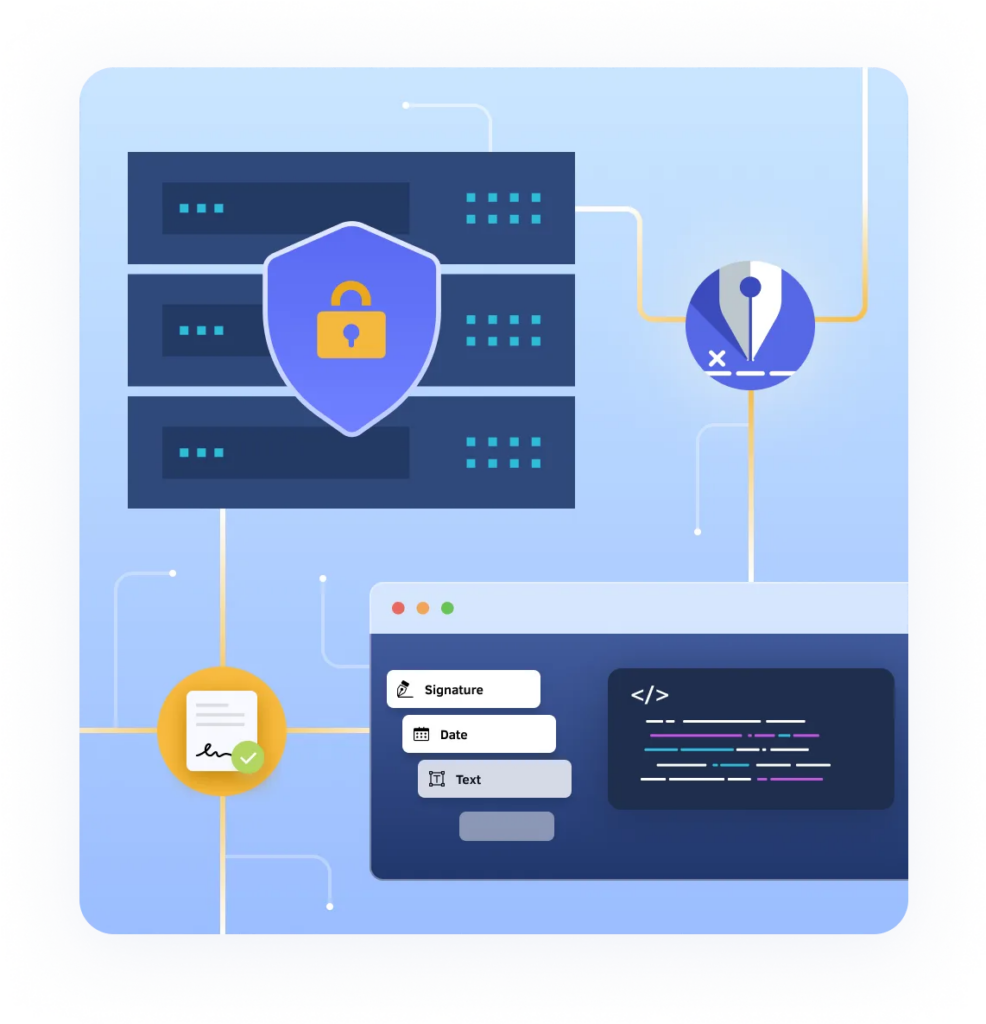How to Become a Remote Online Notary
In today’s digital age, the process of notarizing documents has significantly evolved, allowing notaries to perform their duties remotely. Remote Online Notarization (RON) has opened new avenues for both notaries and clients, providing convenience and efficiency that traditional notarization methods often lack.
According to the National Notary Association, the use of RON increased by 547% in 2020 due to the pandemic’s impact on in-person services. This article will guide you through the intricacies of becoming a remote online notary, understanding the process, and exploring the benefits and challenges associated with RON.
What is Remote Online Notarization and How Does it Work?
Understanding Remote Online Notarization (RON)
Remote online notarization (RON) is the process by which a notary public notarizes documents digitally using electronic signatures and audio-visual technology. Unlike traditional notarizations that require physical presence, RON allows you to operate remotely, offering your services to signers who could be located anywhere in the world. As of 2024, 46 U.S. states have enacted permanent laws authorizing RON. This innovative approach leverages technology for identity proofing and digital certificate verification, ensuring that the notarial act remains as secure and legally binding as its traditional counterpart.
How Does a Remote Notary Verify Identity?
Identity verification in remote online notarization is a critical step to ensure the integrity of the notarization process. A remote notary must use advanced methods such as knowledge-based authentication, credential analysis, and biometric screening to verify a signer’s identity. The notary may also require the signer to present government-issued identification digitally. Additionally, the use of audio-visual technology allows the notary to conduct a live video session where both parties can interact, further authenticating the identity of the signer.
Key Differences Between Traditional and Remote Notarization
While both traditional and remote notarizations serve the same legal purpose, they differ significantly in execution. Traditional notary services require the physical presence of the signer, whereas remote online notarization is conducted entirely online. A remote notary can notarize documents without being physically present with the signer, offering flexibility and accessibility. Moreover, RON incorporates electronic documents and signatures, making the process quicker and more efficient compared to the manual handling of paper documents in traditional notarization.
How Can I Become a Commissioned Remote Online Notary?
Steps to Get Commissioned as a Remote Notary
To become a remote online notary, you must first be a commissioned notary public in your state. Here is a step-by-step guide to help you through the process:
- Verify State Eligibility: Ensure your state allows remote online notarization and understand any specific regulations. As of now, over 46 states have enacted RON laws.
- Complete a RON Training Program: Prospective notaries must meet their state’s requirements. Many states require you to pass a background check and complete a state-approved RON training course that covers the legal and technical aspects of remote notarization.
- Apply for a RON Commission: Submit an application form to your state’s notary commissioning authority, which may include paying a fee and providing proof of training completion. Application fees range from $20 to $100 depending on the state.
- Obtain a Digital Certificate: Acquire a digital certificate that verifies your identity for electronic notarizations. Once approved, the notary is granted authorization to perform remote online notarizations.
- Select a RON Technology Provider: Choose a RON technology platform that complies with your state’s legal requirements for identity proofing, audio-visual technology, and record-keeping. In addition to the RON platform, you will also need an eSign solution like DottedSign to handle electronic signatures and securely manage digital documents.
- Set Up Your Workspace: Ensure you have the necessary technology, including a computer with a webcam, a secure internet connection, and any required software.
By following these steps, you can smoothly transition into offering remote notary services and expand your client base.

Requirements and Qualifications for RON Notaries
Each state has specific requirements that you must fulfill to become a remote online notary. These often include:
- Being an active commissioned notary.
- Completing state-approved RON training, passing any required exams, and obtaining a digital certificate.
- Undergoing a background check. Many states require a background screening.
- Maintaining a journal of all remote notarizations. The notary must also select a RON technology provider that complies with state regulations for identity proofing and electronic document handling.
- Understanding state laws regarding remote notarization practices. Aspiring remote notaries need to familiarize themselves with their state’s laws and regulations to ensure compliance.
State-Specific Requirements for RON Commission
It is crucial to familiarize yourself with your state’s specific regulations regarding RON. Some states may have additional requirements, such as:
- Minimum years of experience as a notary.
- Additional bonds or insurance. For example, Texas requires a $10,000 bond for RON notaries.
- Specific technology standards for RON platforms.
Always check with your state’s notary authority to ensure full compliance.
Training and Certification for Remote Notarization
Training and certification are essential components for becoming a successful remote online notary. RON training programs educate you about the legal framework, technology, and best practices involved in remote notarization. These programs cover topics such as:
- Electronic signature laws (e.g., ESIGN Act, UETA).
- Digital notary platforms and how to use them effectively.
- Security measures to protect sensitive information.
Upon completion of training, you receive certification, which is often required to perform remote notarizations legally.
Building Your RON Network
Joining professional notary communities and networks can provide support and resources as you transition into remote notarization. Engaging with other RON professionals can help you stay informed about industry trends and best practices. Platforms like the American Association of Notaries offer local networking opportunities and resources.

Am I Able to Do a Remote Online Notarization Overseas?
Legal Considerations for International Remote Notarizations
Performing remote online notarizations overseas involves navigating various legal considerations. A notary must be physically located in the state where they are commissioned, even if the signer is located overseas. However, the document being notarized can be used internationally, provided it complies with the legal requirements of the relevant jurisdictions. Notaries should be aware of any international laws or treaties that might affect the validity of a RON conducted across borders.
Staying Updated with RON Laws and Trends
International laws and treaties, such as the Hague Convention, may affect the validity of a RON conducted across borders. It is essential to stay informed about these regulations to ensure your notarizations are legally recognized. Consult the U.S. Department of State’s guidelines on international notarization for more information.
Technology and Tools Needed for Overseas RON
Conducting remote notarizations overseas requires reliable technology and tools to ensure smooth communication and document handling. You must use:
- Notaries must use secure audio-visual conferencing platforms to interact with signers and verify their identities.
- Digital certificate and encryption technologies to protect the integrity of electronic documents.
- A robust internet connection and access to a compliant RON software, along with an eSign platform like DottedSign, which assists in the RON process by offering international support and secure features.
Choosing the Right eSign and RON Platform
Selecting a RON platform that meets both your state’s requirements and international standards is crucial.
Along with a RON platform, it is highly recommended to adopt a secure eSign solution like DottedSign, which provides a user-friendly platform that assists notaries in almost every step of the Remote Online Notarization (RON) process by managing electronic signatures and documents, ensuring compliance with global security standards like ISO 27001.
While DottedSign is not a RON platform itself, it is a must-have tool that streamlines the eSigning process for both local and overseas clients. Try it now!

Challenges and Solutions for Notarizing Documents Remotely from Abroad
Notarizing documents remotely from abroad presents challenges such as:
- Time zone differences.
- Varying international legal requirements.
- Technological barriers.
To overcome these challenges, notaries can:
- Schedule notarizations at times convenient for both parties.
- Stay informed about international laws affecting RON.
- Utilize advanced technology solutions that offer multilingual support and international compliance features, which can also enhance the efficacy of remote notarizations conducted overseas.
By proactively addressing these challenges, you can provide seamless services to clients worldwide.

What Are the Benefits of Remote Online Notarization?
Convenience and Efficiency of RON Notarizations
Remote online notarization offers unparalleled convenience and efficiency for both notaries and clients. The ability to notarize documents from any location eliminates the need for travel and allows for flexible scheduling. This convenience extends to signers who can complete the notarization process from the comfort of their homes or offices, reducing time and effort compared to traditional methods.
With platforms like DottedSign, you can streamline the electronic signature and document management aspects of the RON process, making it more efficient and seamless.
Security Features in Remote Notarization
Security is a paramount concern in remote notarization, and RON providers offer several features to safeguard the process, including:
- Multi-factor authentication for identity verification.
- Encrypted data transmission. DottedSign uses AES-256 encryption, the industry standard for secure data (source).
- Secure storage of electronic documents.
The use of digital certificates adds an additional layer of security by confirming the authenticity of electronic signatures and ensuring the integrity of the notarized document.
DottedSign provides industry-leading security measures, ensuring that the electronic signatures and document management in the RON process are protected and compliant with legal standards.
Cost-Effectiveness Compared to In-Person Notarization
Remote notarization can be more cost-effective than in-person notarization, as it reduces expenses related to:
- Travel.
- Paper handling. The average office worker uses 10,000 sheets of paper per year, costing businesses significant amounts.
- Physical storage.
Online notary services often offer competitive pricing and subscription models. By streamlining the notarization process, remote notaries can handle a higher volume of notarizations, potentially increasing your income.
Understanding Pricing and Service Options
When selecting a RON platform, it’s important to evaluate the pricing and service options that best meet your notarization needs. In addition to a RON platform, you also need an eSign solution like DottedSign, which offers flexible plans to assist with the electronic signing process and document handling, whether you are just starting out or managing a high volume of notarizations.
Real-Life Success Stories
Notaries across the country have successfully transitioned to remote online notarization, experiencing growth in their businesses and client satisfaction.
“Switching to remote online notarization with DottedSign has transformed my notary business. My clients love the convenience, and I’ve been able to expand my services nationally.” – Sarah T., Commissioned Notary
“Special kind of eSignature software using cryptography technology to protect the document and embeds details like email addresses, when and where people signed, serial number and identifying details of device they use. It is worth keeping.” – David J., Team Lead

How Can You Market Your Remote Notary Services?
Marketing Your Remote Notary Services
To maximize your reach as a remote online notary:
- Create a professional website highlighting your RON services.
- Leverage social media platforms to connect with potential clients.
- Join online directories and notary networks.
- Offer promotions or discounts to first-time clients.
By promoting your services effectively, you can attract a wider client base and establish yourself as a trusted remote notary.
According to HubSpot, businesses that prioritize blogging are 13 times more likely to achieve a positive ROI. Consider starting a blog to share insights and attract clients.
How Can I Connect with a Remote Notary for My Document Notarization?
Finding a Reliable Remote Notary Service
To connect with a remote notary, individuals should seek out reputable online notary platforms that offer reliable and secure services. These platforms typically provide a directory of commissioned notaries, allowing users to choose a notary based on their specific needs. It is important to verify that the platform and notary comply with state regulations and offer the necessary security features to protect sensitive information.
Why Choose DottedSign to Support Your RON Needs
DottedSign offers a comprehensive eSign solution that supports notaries by handling the electronic signature and document management aspects of the Remote Online Notarization (RON) process.
With features like secure audit trails, user-friendly interface, and exceptional customer service, DottedSign stands out as a leading eSign platform that plays a crucial role in facilitating with RON process.
- Compliant with state regulations and global security standards.
- 24/7 customer support to assist with any inquiries.
- Competitive pricing with flexible plans.
Steps to Get Your Document Notarized Online
The process of getting a document notarized online begins with selecting a remote notary service and scheduling an appointment. The signer will then upload the document to be notarized and complete the identity verification process. During the live audio-visual session, the notary will witness the signer’s electronic signature and apply their digital notary seal. Once the notarization is complete, the finalized document is securely delivered to the signer.
Frequently Asked Questions About Remote Notarization Services
Many individuals have questions about remote notarization services, such as the legality of RON in their state, the types of documents that can be notarized remotely, and the security measures in place to protect their information. It is important for users to consult with their chosen notary service provider to address these concerns and gain a comprehensive understanding of the remote notarization process. By doing so, they can ensure a seamless and secure experience.

Q: Is remote online notarization legal in my state?
A: RON is legal in many states, but it is important to check your state’s specific laws and regulations. Refer to the National Notary Association’s state-by-state guide.
Q: What types of documents can I notarize remotely?
A: Most documents that require notarization can be notarized remotely, except for certain documents restricted by state laws.
Q: How does DottedSign ensure the security of my notarizations?
A: DottedSign ensures the security of the electronic signature and document management aspects of the Remote Online Notarization (RON) process by employing advanced encryption (AES-256), secure storage, and stringent identity verification processes.
These include one-time passwords (OTPs), digital certificates issued by the Adobe Approved Trust List (AATL), and detailed audit trails, all designed to protect your information throughout the eSign process.
Q: Can I perform remote notarizations for clients located overseas?
A: Yes, as long as you are physically located in the state where you are commissioned, you can notarize documents for signers anywhere in the world.
Q: How do I stay updated with changes in RON laws and regulations?
A: Regularly review your state’s notary public website, join professional notary associations, and participate in continuing education opportunities.
Conclusion
Becoming a remote online notary opens up a world of opportunities, allowing you to expand your services and meet the evolving needs of clients in a digital landscape. With the global eSignature market expected to reach $14.1 billion by 2026, the demand for RON services is on the rise.
By leveraging reliable RON platforms and using complementary eSign solutions like DottedSign, while staying informed about industry trends, you can position yourself at the forefront of the notary profession.
Start Your Trial and Enhance Your RON Process with DottedSign
Embark on your journey as a remote online notary today.With DottedSign, you have the tools and support to manage electronic signatures and document handling in the rapidly growing field of remote online notarization. Sign up now and experience the future of notarization firsthand.


